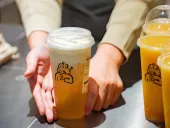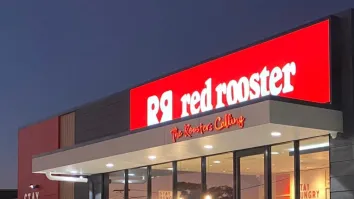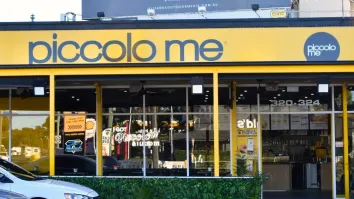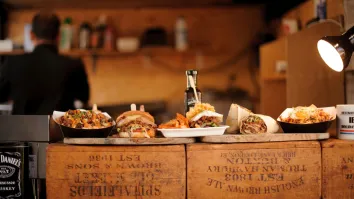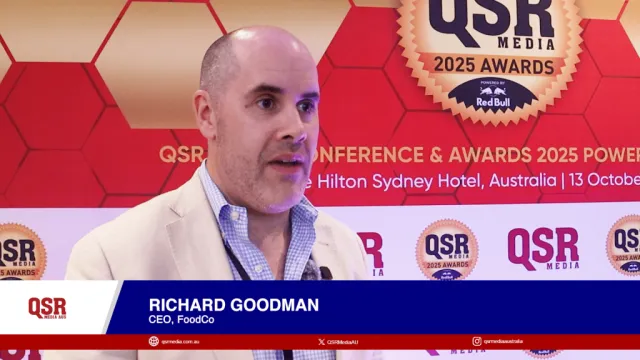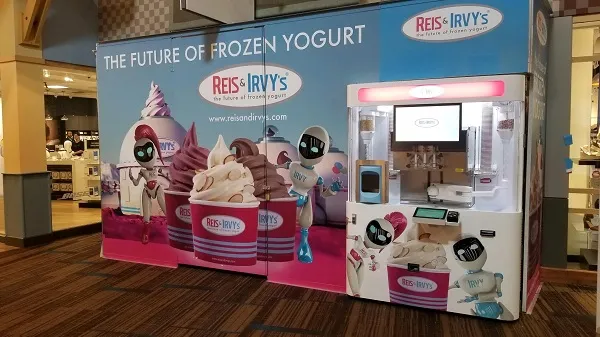
Reis & Irvy's: frozen yoghurt's low-cost, robotic future
Its Australian licensor says they are exploring partnerships with QSRs to integrate the machines in their restaurants.
The machine that houses the frozen yoghurt robot looks more akin to a vending machine than a traditional retail store. The characters of Reis and Irvy, the brand’s eponymous droid-like mascots, strike cutesy-yet-characteristic poses on an elevated monitor and on the machine’s front. A touchscreen awaits a customer’s order.
This unassuming machine from the innovative U.S.-based franchise brand is dubbed ‘The Future of Frozen Yoghurt’. And it is one set on a course to disrupt the growing dessert market in Australia.
“The three biggest costs in retail are staff, rent and electricity and all three are growing at record rates while sales are stagnating,” Troy Bingham, Reis and Irvy’s Australian licensor, told QSR Media.
“We can do exactly the same function and turnover with no staff, a much smaller store footprint and lower energy costs.”
Upon receiving an order, Reis and Irvy’s robotic arm nimbly draws a cup from its stock, directs it at the specified flavours and toppings, and then promptly delivers it to the customer through a window. The robots have the ability to serve six different flavours with six toppings all in under sixty seconds.
Since opening in California in 2012, the brand has successfully expanded to Australia, Canada, and Israel with 275 franchisees, and more on the way.
“It’s the ultimate blend of technological innovation mixed with anticipation, fascination and sheer satisfaction,” Bingham said. All at a fraction of the costs of a traditional dessert chain.
Reis and Irvy’s entered the country amid recent reports warning about the possibility of robots replacing human workers in lower-skilled and manual labour roles across industries.
Research has suggested that as many as one in three Australian jobs are at risk of being automated by 2030, as employers begin to pursue the efficiency and profitability promised by robots. In Tasmania, many of the occupations most vulnerable come from the hospitality and retail sector, particularly sales roles, food preparation and general clerks, according to new research by the Regional Australia Institute.
Experts believe that the impact of the job loss in such areas will be mitigated by the increase in demand for higher-skilled workers, such as those in customer-facing roles and those in IT. The proposal is that employers should start training workers for more higher value jobs and embrace automation in order to ensure trillions of dollars’ worth of future economic growth.
Disruptive and hassle-free
As a futurist himself, Bingham believes that Reis and Irvy’s represents the next step in the evolution of Australia’s dessert sector. What initially attracted him to the brand was the disruptive nature of its technology, and the simple, hassle-free business model without the stresses that come with managing employees.
He also confirmed that he is exploring partnerships with QSRs to launch the yogurt machines into their restaurants whilst having discussions with several product supply brands as well.
“Technology will completely transform the QSR space in the next five to ten years. You will see delivery of product without drivers. You will see ordering, drive through and service without human interaction. More and more you will see robotic and automatic solutions filling walls or spaces serving all kinds of products from ice cream, to smoothies, to coffee to pizza,” he said.
“Robotics and automation will take over any area where you are doing a basic repetitive task and will do it more efficiently, consistently and 24/7 which drives down your cost base and gives a consistent, interactive service at a better price.”
With a footprint of just 1.4 square meters, the Reis & Irvy’s vending kiosks can be installed into various high traffic locations like airports, shopping malls, hotels, universities, sports arenas, theme parks, and more. The first ten of such machines will be popping up in the Gold Coast, Sunshine Coast, and Brisbane. Afterwards, Bingham is targeting Sydney and Melbourne, and grow from there. Within the next year, he plans to roll out anywhere from 100 to 200 kiosks across Australia.
“The most exciting feature about this industry disrupting concept in is the low maintenance and high efficiency of the Reis & Irvy’s Robot. Our fully automated, on-demand kiosks are an efficient source of revenue as well as an animated attraction,” he said. "Automation is replacing many industries here now, why not own a machine and be a part of the revolution?”
